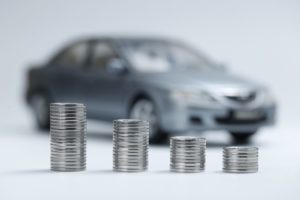Do company drivers save money by claiming for private fuel?
Written by: Simon Pavey, Last updated:10th September 2024

For drivers of company cars, it is possible to have their employers pay for their private fuel. However, the number of drivers making use of this benefit has been declining in recent years.
When drivers use their company car for personal use, they accumulate private miles. This mileage could be quite small, however if the driver were to use the vehicle in multiple cross-country journeys over the year, their private miles would add up extensively.
Therefore, having your private fuel paid for by your employer may seem like a great deal. Despite this, however, there is a reason drivers are choosing to simply reimburse their employers for the fuel instead.
Car Fuel Benefit Charge
Whether your employer pays for all of your fuel or not, you will already be paying tax for your company car. This amount depends on the specific vehicle and engine, the listed price when new, and the CO2 emissions measured in grams per kilometre (g/km).
This is referred to as the benefit in kind charge, and is added to your taxable income for the year. Online calculators are available to work out how much tax you’ll be paying for your specific company car.
When your employer covers your private fuel, you become subject to an additional tax – the Car Fuel Benefit Charge.
This extra charge can negate any benefits of having your employer pay for your fuel, depending on the type of car and your usage.
For example, imagine you are doing 4400 private miles in a diesel car with CO2 emissions of 100g/km. As a basic rate tax payer (20%) In 2021, you would be paying £1,377.60 in tax for this benefit, whilst the value of the free fuel you have used would be just over £645. In this example, having your employer pay for your private fuel is financially detrimental.
In fact, in this vehicle, you would have to be doing over 9396 private miles just to break even. This is potentially very unrealistic. In 2019, the average UK driver was only doing 4400 private miles.
Reimbursing your employer
These figures show that the only way to financially benefit from your employer paying for your fuel is by doing enough private mileage, so the overall cost of your used fuel is greater than the Car Fuel Benefit Charge.
The alternative would be to reimburse your employer for any fuel used during your private mileage. By doing so, one would eliminate the Car Fuel Benefit Charge.
You’ll need to monitor your private mileage over the year to calculate how much you should be repaying your employer. You can do this by keeping your receipts, but keeping track of this is easier with a fuel card account.
Multiply your mileage by the HMRC’s advisory fuel rate for your vehicle. Assuming the engine size of your vehicle is between 1601cc to 2000cc, that rate is 11p per mile in 2021.
By multiplying this rate with the average UK private mileage gives us a cost of £484 to be reimbursed to the employer.
This is instead of paying £1377.60 in car fuel benefit charge, and saving £827 in the process.
Few company car drivers claim private fuel
As of 2020, only 12% of company car drivers were receiving the benefit of having all of their fuel paid for by their employer. This figure has been falling over the last decade. In 2010/11, 250,000 drivers were having their fuel paid for by their employer, costing a total of £360 million in tax. By 2018/19, only 110,000 drivers were receiving these benefits.
This is likely due to the higher than average number of private miles required by the driver to break even. Also, rising fuel prices would have encouraged drivers to evaluate their situation more carefully. They might have noticed that their savings were being nullified by the Car Fuel Benefit Charge.
If you are one of the 12% that still claim private fuel, consider using the above calculations. You can determine whether you could be saving money by simply reimbursing your employer instead.
To find out more about how your company could be making great savings on fuel, get in touch with our team – we’re happy to help.
back



